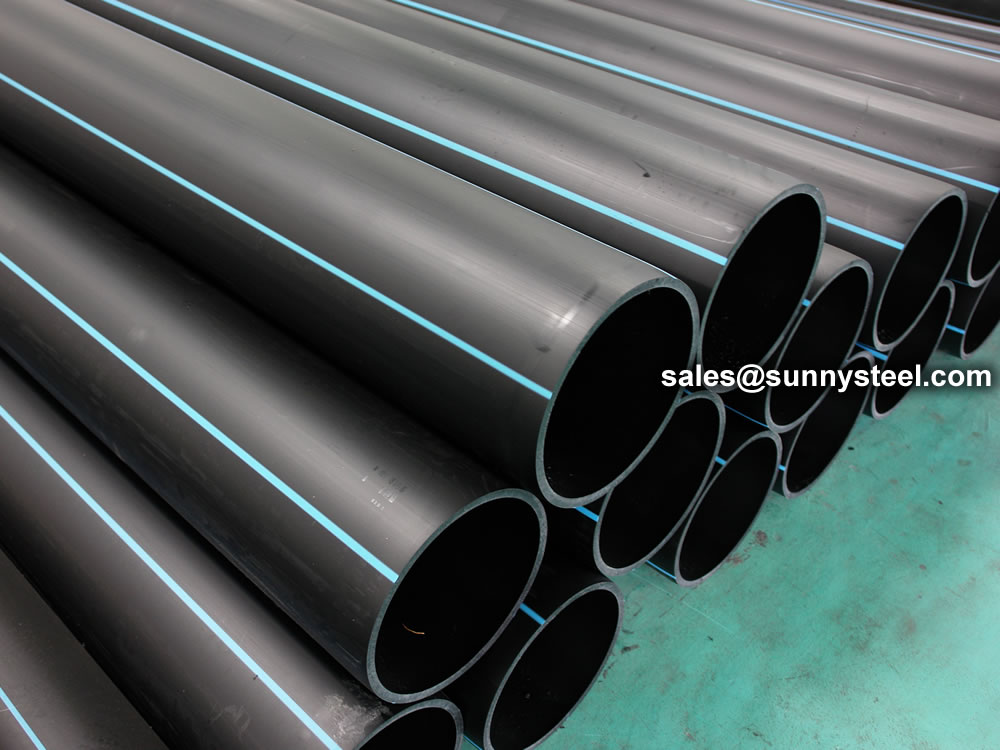How hdpe pipe suppliers Midland TX Are Supporting Agriculture
Comprehending the Key Perks of HDPE Pipeline for Water and Wastewater Administration
The use of HDPE pipeline in water and wastewater monitoring offers numerous advantages that merit consideration. Its extraordinary sturdiness and lengthy lifespan make it a favored option for numerous tasks. Furthermore, the product's resistance to rust and chemical damages improves its integrity in different settings. Nonetheless, the benefits extend past just durability and resistance. Exploring its cost-effectiveness and environmental effect reveals a lot more engaging reasons for its prevalent fostering in contemporary infrastructure
Phenomenal Toughness and Longevity

HDPE pipe attracts attention for its outstanding longevity and long life, making it a favored option in water monitoring systems. Constructed from high-density polyethylene, these pipelines can withstand considerable pressure and stress, making certain dependable performance over time. Their durable nature allows them to sustain extreme ecological conditions, including temperature variations and soil movements, which can cause other products to fail.
The lifespan of HDPE pipes typically surpasses half a century, providing a cost-efficient solution for towns and industries alike. In addition, the product's light-weight buildings streamline installation, lowering labor expenses and timeframes. This durability decreases the need for frequent repair services or replacements, better boosting its financial allure.
In water administration applications, the integrity of HDPE pipes means fewer interruptions and improved solution continuity, making them important to lasting framework advancement. The mix of longevity and durability solidifies HDPE's function as a cornerstone in reliable water administration remedies.

Resistance to Deterioration and Chemical Damages
While many products succumb to rust and chemical damage gradually, HDPE pipelines show exceptional resistance, making them excellent for numerous water monitoring applications. This durability stems from the molecular framework of high-density polyethylene, which is naturally non-reactive and does not corrode like steels or deteriorate from direct exposure to rough chemicals. As a result, HDPE is highly efficient in settings with hostile compounds, such as wastewater systems that may consist of acids, bases, and organic solvents.
Furthermore, HDPE pipes can stand up to ecological factors such as soil acidity and saline conditions, additionally boosting their suitability for varied applications (custom hdpe pipe manufacturing Midland TX). Their capacity to preserve architectural integrity gradually minimizes the risk of leaks and failings, which is crucial in making certain the safety and reliability of water circulation and wastewater monitoring systems. Subsequently, the resistance to deterioration and chemical damage substantially adds to the overall efficiency and longevity of HDPE piping solutions
Cost-Effectiveness and Economic Benefits
When taking into consideration the financial ramifications of water management systems, the cost-effectiveness of HDPE pipes comes to be evident. These pipelines offer reduced setup and upkeep expenses compared to conventional materials like steel or concrete. Their lightweight nature simplifies transport and setup, leading to lowered labor expenses. In addition, HDPE pipes display a long lifespan, commonly going beyond 50 years, which converts to fewer substitutes and long-lasting financial savings.
In addition, the resistance of HDPE to corrosion and chemical damage reduces the requirement for costly repair services and replacements. The pipelines likewise sustain reliable water flow, minimizing energy expenses connected with pumping systems. By minimizing leakages and water loss, HDPE pipes add to significant financial advantages for towns and industries alike. In general, the preliminary financial investment in HDPE piping can generate significant monetary returns over the life expectancy of the water management system, making it a sensible selection for sustainable framework growth.
Ecological Sustainability and Lowered Impact

Versatility and Flexibility in Installation
As a result of their distinct properties, HDPE pipes offer exceptional adaptability and versatility in installation, making them appropriate for a broad range of applications. Their light-weight nature enables for simpler handling and transportation, lowering labor prices and setup time. HDPE pipes can be bent and formed to fit different terrains and task demands, which is particularly valuable in challenging environments.
In addition, their resistance to deterioration and chemical damages permits setup in diverse settings without the requirement for specialized protective coverings. The ability to fuse joints creates a continuous, leak-free system, enhancing the overall honesty and dependability of the installation. HDPE's adaptability additionally fits ground activity, lowering the threat of damage in locations prone to shifting dirt. In general, these qualities make HDPE pipelines not just versatile yet additionally a favored choice for water and wastewater management systems.
Often Asked Concerns
Just How Does HDPE Pipe Compare to PVC in Water Management Applications?
HDPE pipe supplies superior versatility, resistance to corrosion, and toughness contrasted to PVC. Its lighter weight facilitates much easier setup, while its lengthy lifespan decreases substitute costs, making HDPE a recommended choice in water administration applications.
What Is the Life-span of HDPE Piping Under Common Conditions?
Under normal problems, HDPE pipelines can have a lifespan ranging from 50 to 100 years. Their longevity and resistance to deterioration add to their long-lasting efficiency in numerous applications, making them a trusted choice for facilities.
Are HDPE Water Lines Recyclable After Their Life Span?
Yes, HDPE pipes are recyclable after their service life. American Plastics HDPE Pipe for Oilfield. They can be refined and repurposed right into new products, considerably lowering ecological impact and promoting sustainability within the industry, making them an environment-friendly selection for piping solutions
What Is the Installation Process for HDPE Pipes?
The installment process for HDPE pipelines entails website prep work, trenching, pipe fusion here or mechanical joining, backfilling, and stress screening. Correct methods assure a durable and reliable system for transferring water and wastewater effectively.
Can HDPE Pipeline Be Utilized for Both Potable and Non-Potable Water Equipments?
Yes, HDPE pipes can be utilized for both drinkable and non-potable water supply. Their versatility, sturdiness, and resistance to deterioration make them ideal for numerous applications, making sure safe and effective transportation of water in different contexts.